The British nation has had a strong influence on our world (not always a good one, but let’s ignore that today). It seems a lot of people are quite confused by the different names that are related to this iconic country in Europe, so let’s explain the difference between the United Kingdom, England, Great Britain, and the British Isles. No, they don’t mean the same thing at all.
People often confuse these terms and, for example, say “England” when they’re actually talking about the “United Kingdom” or even “Great Britain.”
At Flytrippers, we feel like those who love to travel and explore our world should also love to learn more about our world (we sure do!). So let’s clear up this confusion (like we did for the difference between Europe, the European Union, and the eurozone, the difference between the Republic of China and the People’s Republic of China, or the definition of Benelux).
Here’s the difference between the 4 British terms so that you’re a pro the next time you go to the United Kingdom with Flytrippers’ cheap flight deals or travel rewards deals.
Overview of the difference between the UK, England, Great Britain, and British Isles
Here’s a photo of an iconic spot in the UK, in England, in Great Britain, and in the British Isles… but all 4 terms are still very different.
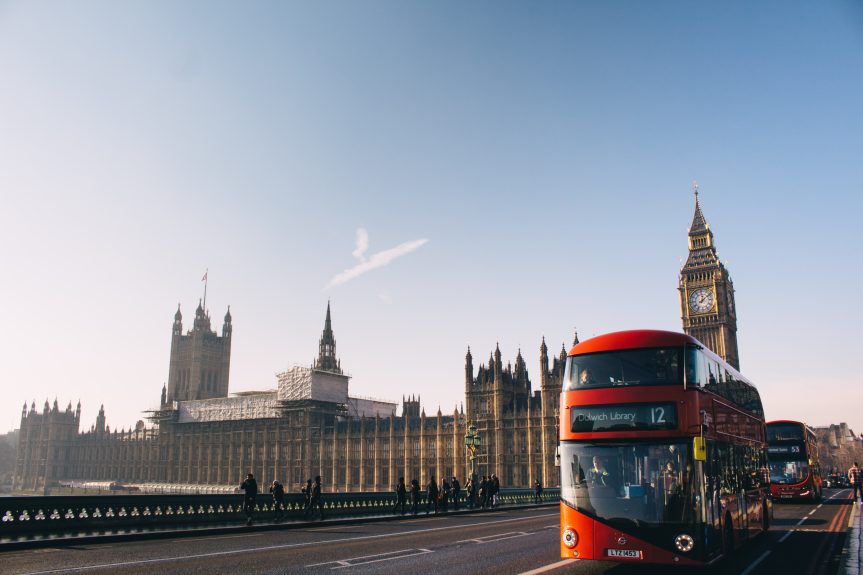
In short, the United Kingdom and England are political terms:
- The United Kingdom (UK) is the name of the country
- England is the name of the main part of the UK
Great Britain and the British Isles are geographic terms:
- Great Britain is the name of the main island of the UK
- The British Isles is the name for that whole group of islands
It’s pretty simple once you know it, after all!
London is a city in England, which is a part of the country called the United Kingdom. This part is located on the island of Great Britain, which is one of the British Isles.
In other words, all of England is in the UK: England is a subdivision of the UK. But there are other parts of the UK that aren’t England: there are 4 “countries” within the United Kingdom (the equivalent of provinces or states to simplify). All 4 have the same entry rules, so all 4 now require an electronic visa for many nationalities like Canadians and Americans; it’s the United Kingdom Electronic Visa Authorisation (UK ETA). I list the other 3 “countries” below.
And Great Britain is the island where England and other parts of the UK are located. But there are other British Isles around Great Britain, some of which are part of the UK — but not all. Finally, some parts of the UK are not on the island of Great Britain either.
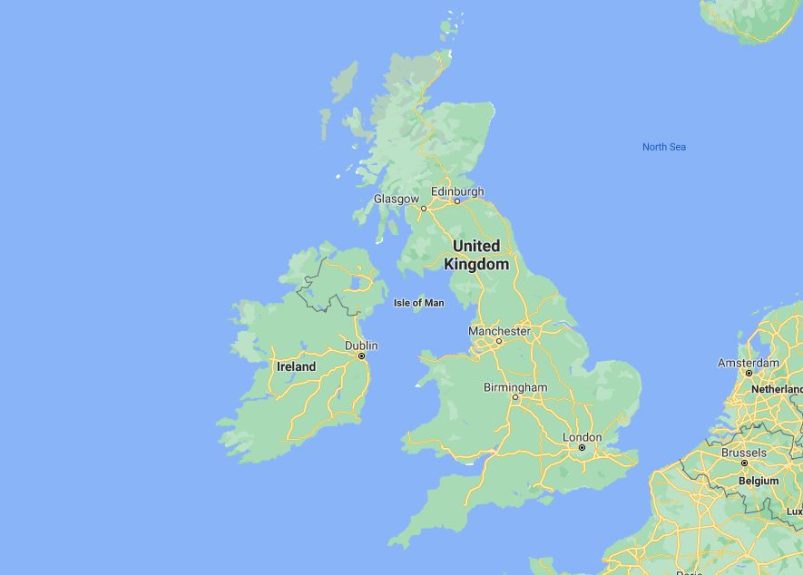
Let’s look at each term in more detail.
United Kingdom
Politically speaking, the UK is a sovereign country, comprised of 4 constituent countries.
The fact that these 4 are called countries instead of provinces or states might be what leads to confusion. These 4 are not independent countries: the UK is what we all know as a country. The UK is the one represented at the United Nations (but the 4 nations have their own teams at the FIFA World Cup, which confuses many people).
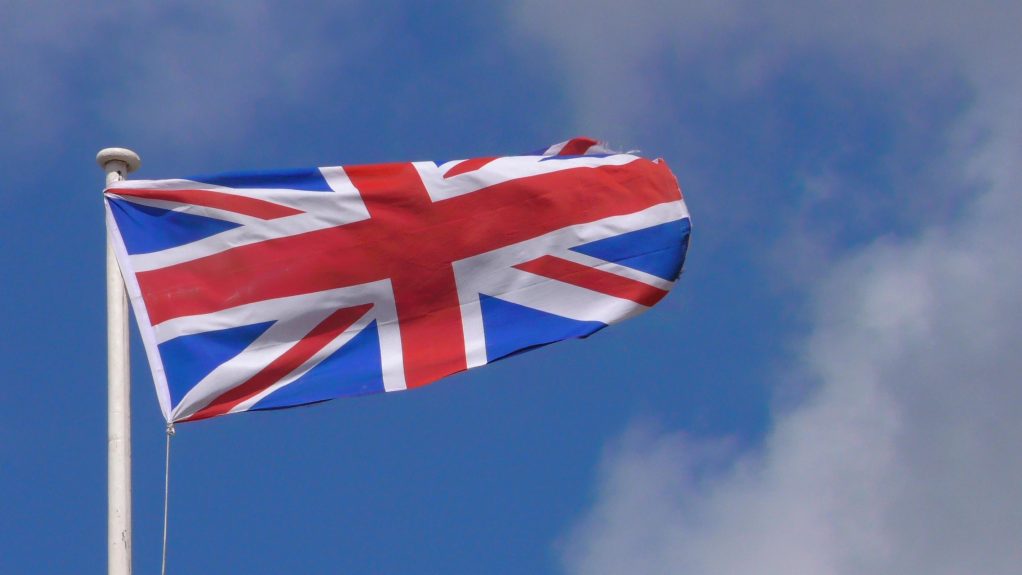
Here are the 4 main subdivisions of the UK (and the island where they are located):
- England (Great Britain) 🏴
- Scotland (Great Britain) 🏴
- Wales (Great Britain) 🏴
- Northern Ireland (Ireland) 🏴
The UK’s full name is actually the “United Kingdom of Great Britain and Northern Ireland.”
As that name suggests, the UK consists of the island of Great Britain and the northeastern part of the island of Ireland… but also other territories.
You might not know this, but the United Kingdom’s flag, the famous Union Jack, is actually a layering of the historic flags of Ireland, Scotland, and England (sorry, Wales; apparently the dragon didn’t fit the aesthetic).
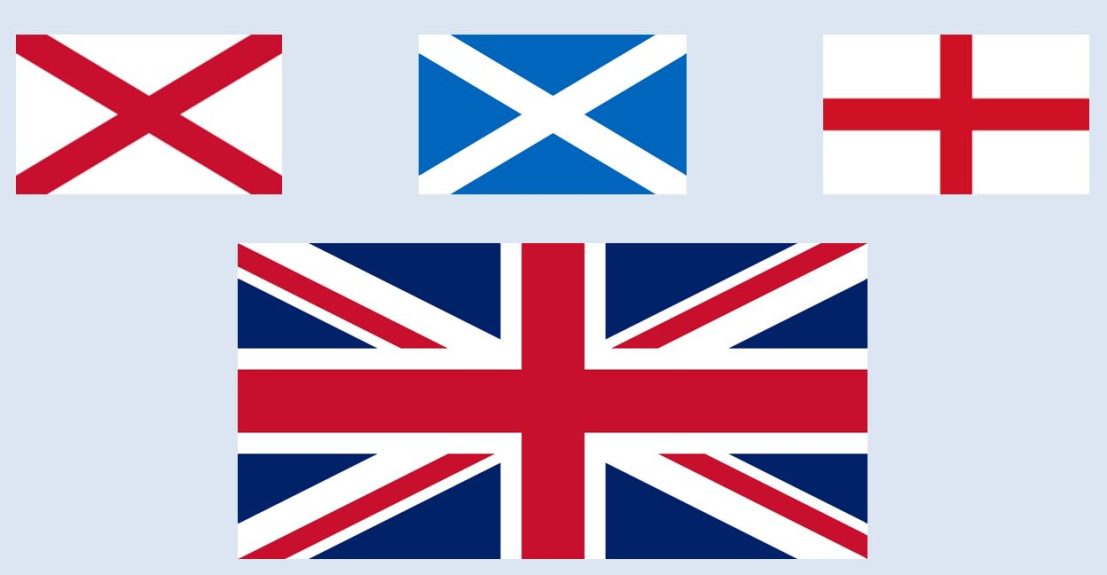
Each subdivision has some autonomy in its political matters, but all of them are bound to the Crown. However, each one retains its local identity and language.
For example, the official language of the UK, overall, is English, but Welsh is also an official language in Wales. And Scotland is so different that they held a referendum on independence in 2014 (and might succeed in the next one due to Brexit). Finally, Northern Ireland is also culturally pretty distinct from the 3 other parts of the UK, in part since it is on a different island.
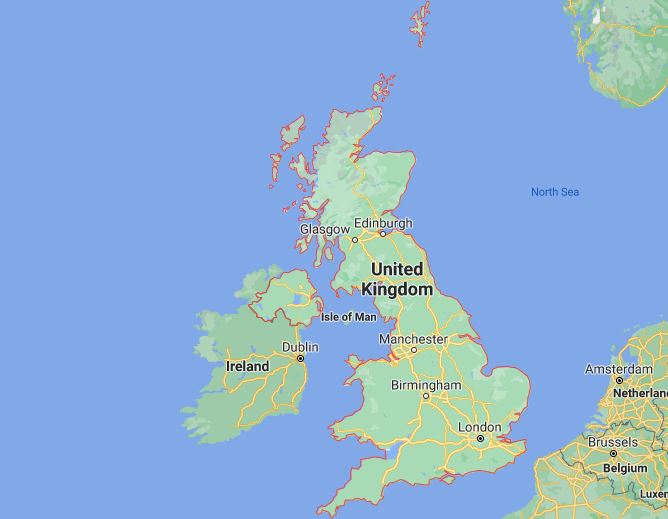
England
What most people think of when they think of “the UK” and “Great Britain” is indeed England.
It is the largest and most populous subdivision in the UK, by far. London, the capital and major metropolis, is in England (as are the 3 other largest metropolitan areas in the UK: Manchester, Birmingham, and Leeds-Bradford).
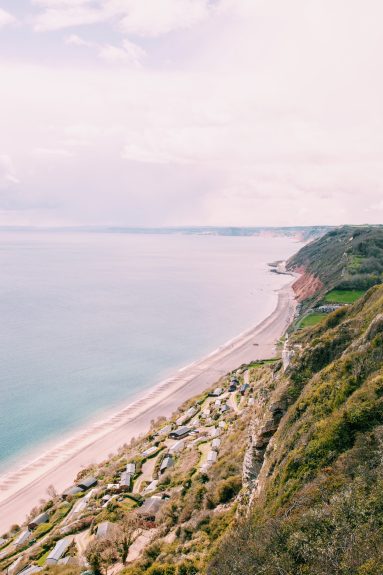
In fact, 84% of the UK’s population is in England (56 million out of 67 million total). For comparison, Canada’s most populous province has 38% of the country’s population and in the U.S., it’s just 12%.
England is obviously the birthplace of the English language and is famous for its rich history, fine literature, Stonehenge, iconic architecture, infinite number of crowded pubs… and the myth of everlasting rainy weather.
Just like many things in the world are very counterintuitive, London is not that rainy: did you know that most of Europe is factually rainier than London? True story. Even Miami is rainier than London by some metrics!
We’ll have a post about this soon… but it’s a good reminder that just because you think something is true, that doesn’t mean the facts agree. It’s a good lesson that should already have been learned by all those who’ve explored the world and seen that what most people think of most places is not always accurate…
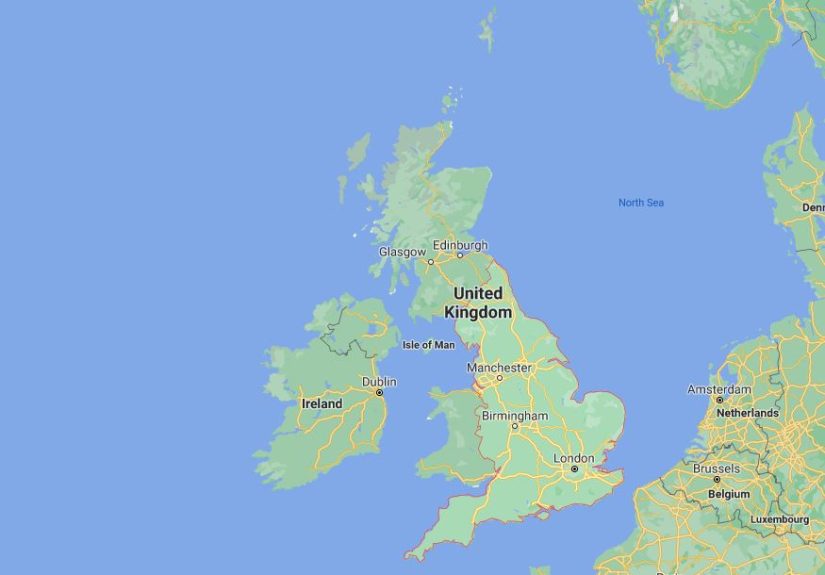
Great Britain
Great Britain (or just Britain) is a purely geographic term: it’s just the name of the largest European island, located in the North Atlantic Ocean, northwest of continental Europe.
It is the part of the United Kingdom consisting of England, Scotland, and Wales.
What might lead to confusion is that the demonym for citizens of the UK is “British” because “United Kingdomers” doesn’t sound great. It’s not unlike how “Americans” is also derived from a geographic term that isn’t entirely accurate for the corresponding country because “United Staters” is not very pretty either.
Great Britain is just one of the British Isles (the largest one).
The British Isles
The British Isles is also a geographical term. It refers to the entire group of islands located in the northwestern part of Europe.
The archipelago consists of more than 6,000 islands, but the 2 main ones are:
- Great Britain
- Ireland
While all of Great Britain is part of the UK, not all of the island of Ireland is part of the UK — only the northeastern part. The country of Ireland occupies the majority of the island of Ireland and is a sovereign nation that is completely independent of the UK.
In other words, on the island of Ireland (which is one of the British Isles), the northeastern part belongs to the United Kingdom (a country) but the southern part belongs to the Republic of Ireland (a different country).
Venn diagram illustrating all 4 British terms
If you like Venn diagrams, here is an interesting one with geographic terms in green and political terms in blue.
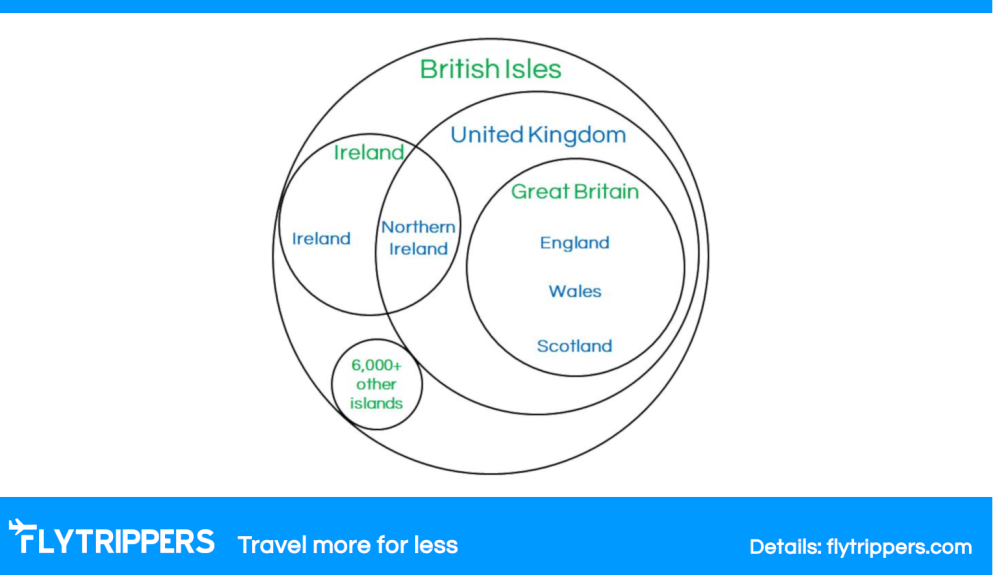
Learning how to travel for less
Join over 100,000 savvy Canadian travelers who already receive Flytrippers’ free newsletter so we can help you travel for less (and inspire you, too)!


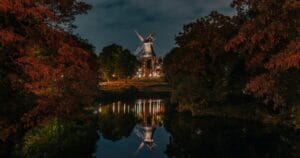
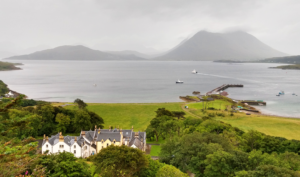

What confuses me is when someone simply says they are from the UK. That does NOT tell me where they are from. I much prefer to know the name of the country, within the UK, they are from. Are they from England, Scotland, Wales, or Northern Ireland?
I’m from Canada and although Canada, along with the USA and Mexico are in North America, I would never say “I’m from North America”. That tells a stranger nothing. I’m from Canada, and more specifically the name of the province I am from for more detail.
Is the seemingly recent reference to the use of the phrase “the UK”, rather than using the distinctive name of the country, somehow on trend? Anyway, I find it annoying and confusing as I like to picture where someone is actually from, not picture the vast United Kingdom.
I guess it really depends on the person’s personal preference. And which entity they identify with the most personally. And I guess it’s simpler to say the UK, as many people don’t even know what the 4 constituent countries of the UK are anyway.